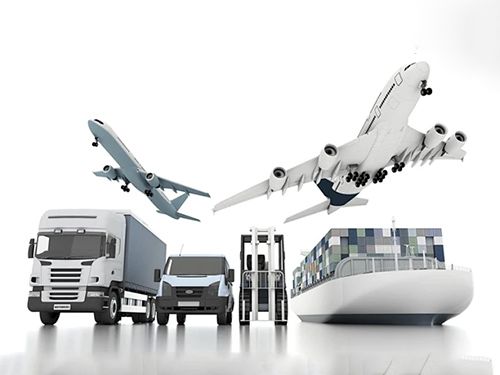
International logistics refers to the logistics activities that cross national borders and involve a series of links such as cargo transportation, warehousing, packaging, insurance, customs clearance and so on. It is an important part of global trade and business exchanges and provides the necessary support and guarantee for international trade. The development and operation of international logistics involves various complex factors and elements, including supply chain management, transportation mode, tariff policy, international trade rules and so on.
The main objective of international logistics is to achieve the efficient transportation and delivery of goods worldwide. In order to achieve this goal, international logistics needs to consider a variety of factors, such as the choice of transport mode, the packaging and marking of goods, the control of transit time, the layout of the transportation network, and so on. Different international logistics activities also need to comply with different international trade rules and standards, such as the International Chamber of Commerce's International Rules for the Carriage of Goods (Incoterms) and the relevant provisions of the World Trade Organization.
In international logistics, supply chain management is crucial. Supply chain management includes the management of the entire process from raw material procurement to final product delivery. In international logistics, supply chain management needs to take into account the differences between different countries and regions, such as differences in language, culture, law and currency. In order to ensure the smooth operation of the supply chain, international logistics enterprises need to establish a sound supply chain management system, including supplier selection and evaluation, inventory management, order processing, transportation arrangements, etc.
Another key factor is the choice of mode of transport. The common modes of transport in international logistics include sea transport, air transport, railway transport and road transport. Choosing the right mode of transportation can effectively reduce costs, improve transportation efficiency, and ensure the safety and timely delivery of goods. Different modes of transport are suitable for different types of goods and different distances. For example, sea transport is usually used for bulk cargo and long distance transport, while air transport is more suitable for goods with higher transport time requirements.In addition, packaging is also an important link in international logistics. The packaging of goods is not only to protect the goods from damage, but also to improve the identification and transportation efficiency of the goods. In international logistics, the packaging of goods needs to meet international standards and follow corresponding regulations, such as the International Maritime Cargo Packaging Code (IMO) and the International Air Transport Association (IATA) regulations. The choice of packaging materials and the design of packaging methods need to take into account the nature of the goods, the mode of transport and the requirements of the destination. Reasonable packaging can reduce the loss and waste of goods in the transportation process, but also help improve the overall logistics efficiency.
Insurance is also an essential part of international logistics. Since international logistics involves the transport of goods across national borders, there are certain risks, such as loss, damage or delay of goods. In order to ensure the safety of goods and the sharing of risks, international logistics enterprises usually buy cargo transportation insurance. Cargo transportation insurance can provide compensation for cargo losses and risks, and provide a certain security and security for cargo owners and logistics enterprises.
Customs declaration is another important link in international logistics. When goods cross national borders, the relevant customs formalities need to be carried out in order to legally import and export. Customs declaration involves a series of procedures such as the declaration of goods, the payment of taxes and fees, and the preparation of relevant documents. Customs clearance regulations and processes vary in different countries and regions, so in international logistics, customs clearance matters need to be handled by professional customs agents or professionals to ensure compliance and smooth customs clearance.
International logistics also needs to comply with various international trade rules and standards. For example, the International Chamber of Commerce's International Rules for the Carriage of Goods (Incoterms) are widely used trade terms and rules around the world to clarify the responsibilities and obligations of buyers and sellers in relation to delivery and transportation. In addition, the World Trade Organization (WTO) has also issued a series of trade regulations and agreements, such as the "General Agreement on Trade in Goods" (GATT) and the "General Agreement on Trade in Services" (GATS), these regulations and agreements have a guiding and normative role in the operation and development of international logistics.
To sum up, international logistics is a complex and critical activity, involving the transportation of goods, warehousing, packaging, insurance, customs clearance and other links. In international logistics, supply chain management, choice of transportation mode, packaging design, insurance purchase and customs clearance procedures all need to be carefully planned and operated. At the same time, international logistics also needs to comply with various international trade rules and standards to ensure the safe and smooth delivery of goods. International logistics plays an important role in promoting global trade and economic development, and provides the foundation and support for cooperation and exchanges between countries. With the further deepening of globalization and the rapid development of digital technology, the field of international logistics is also constantly evolving and innovating. In recent years, a number of new trends and technologies are having a profound impact on the international logistics industry. First, the visualization and digitization of supply chains has become an important trend. By applying technologies such as the Internet of Things, big data analytics and artificial intelligence, companies can track and monitor the location and status of goods in the supply chain in real time, improving transportation efficiency and cargo traceability. At the same time, the rapid development of e-commerce has also prompted international logistics companies to provide more flexible and efficient logistics solutions to meet the growing demand for cross-border e-commerce.Secondly, sustainable development has become an important issue in international logistics. With the improvement of environmental awareness and the increasingly severe global climate change, reducing the negative impact of logistics activities on the environment has become an important task. International logistics enterprises are actively taking various measures, such as optimizing transportation routes, using energy-saving and environmentally friendly means of transportation, promoting green packaging materials, etc., in order to reduce carbon emissions and resource consumption, and achieve sustainable development goals.
In addition, the combination of cross-border e-commerce and international logistics also shows great potential. With the opening of the global market and the popularization of digital technology, more and more enterprises choose to conduct international trade through e-commerce platforms. International logistics companies need to work closely with e-commerce platforms to provide customized logistics solutions, including fast delivery, customs clearance services, returns processing, etc., to meet the needs of e-commerce customers.In the face of increasingly fierce competition and rapidly changing market environment, international logistics enterprises also need to constantly innovate and enhance their competitiveness. This includes introducing advanced logistics technology and equipment, training professionals, and improving service quality and efficiency. At the same time, strengthening international cooperation and network expansion is also the key, through the establishment of a global logistics network and partnerships, to provide a full range of logistics services, to achieve resource sharing and complementary advantages.
In short, international logistics is the movement of goods and the management of logistics across national borders. It involves multiple links and factors, including supply chain management, transportation mode selection, packaging, insurance purchase and customs clearance. The development of international logistics is inseparable from the promotion of global trade and technological progress. With the in-depth development of globalization, the importance of international logistics is becoming increasingly prominent.
The core objective of international logistics is to achieve efficient transport and delivery of goods. To achieve this goal, international logistics needs to consider the following key aspects:
1. Supply chain management: Supply chain management is the core link in international logistics. It involves the management of the whole process from the procurement of raw materials to the delivery of final products. International logistics companies need to work closely with suppliers to ensure the smooth operation of the supply chain, including supplier selection and evaluation, inventory management, order processing, etc. By optimizing the supply chain, logistics efficiency can be improved and costs reduced.
2, the choice of transport mode: the common modes of transport in international logistics include sea transport, air transport, railway transport and road transport. Different modes of transport are suitable for different types of goods and transport distances. International logistics enterprises need to choose the right mode of transport according to the characteristics of goods, time requirements and cost considerations. At the same time, multimodal transport is also a common choice, by combining the advantages of different modes of transport, to provide a full logistics solution.
3, packaging and marking: In international logistics, the packaging and marking of goods play a key role. Proper packaging can protect goods from damage and improve the identification and transportation efficiency of goods. International logistics enterprises need to choose the appropriate packaging materials and packaging methods according to the requirements of the nature of the goods and the mode of transport, and ensure compliance with international standards and regulations.
(4) Insurance and risk management: Since international logistics involves the transport of goods across national borders, there are certain risks. In order to ensure cargo safety and risk sharing, international logistics enterprises usually purchase cargo transportation insurance. Insurance can provide compensation for cargo losses and risks, and reduce the economic losses of cargo owners and logistics enterprises. At the same time, risk management also includes the adoption of preventive measures, such as cargo tracking, security measures, risk assessment, etc.5, customs clearance and compliance: customs clearance procedures in international logistics are essential. When goods cross national borders, customs clearance procedures are required to ensure lawful import and export. Customs declaration includes a series of procedures such as goods declaration, tax payment, document preparation and so on. International logistics companies need to be familiar with customs clearance regulations and processes in different countries and regions to ensure compliance and smooth customs clearance.


Friendly Links: